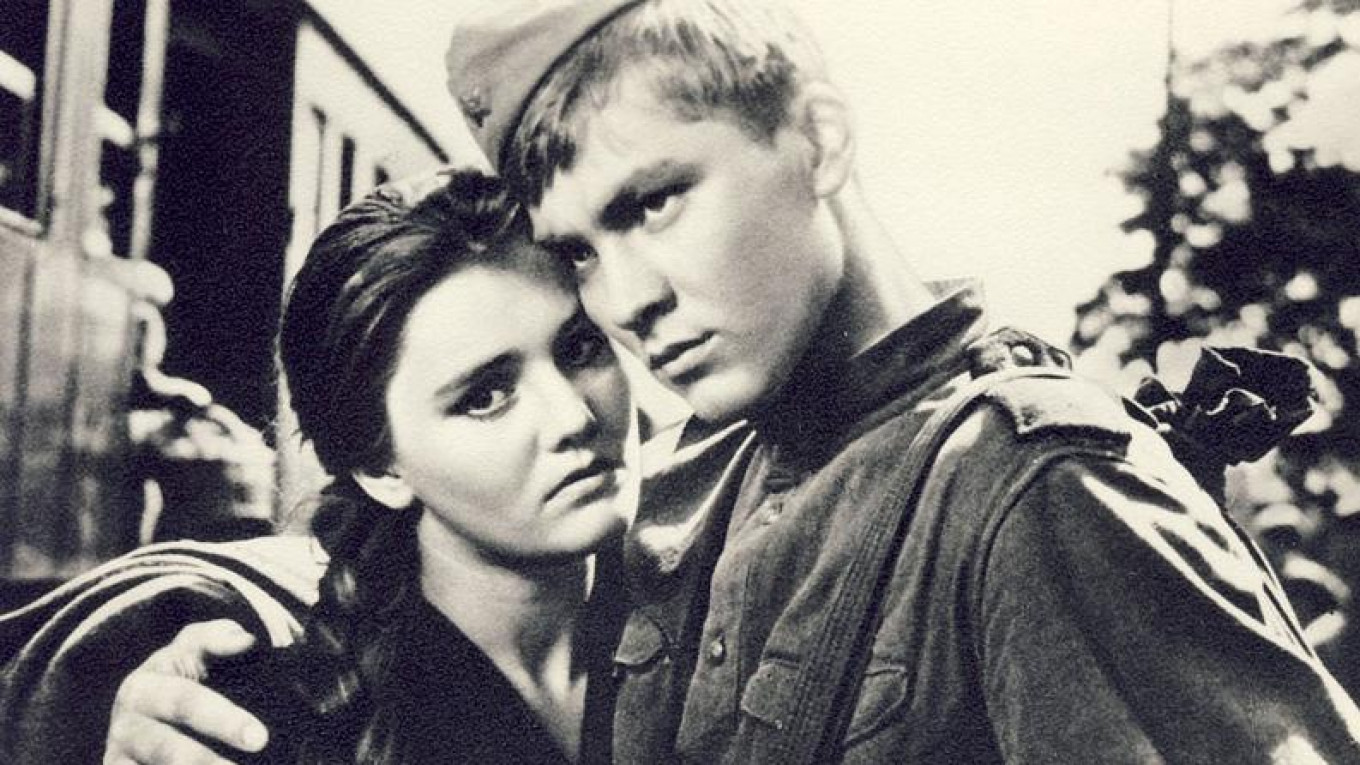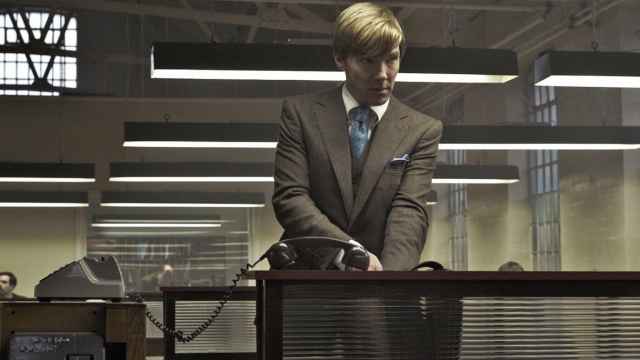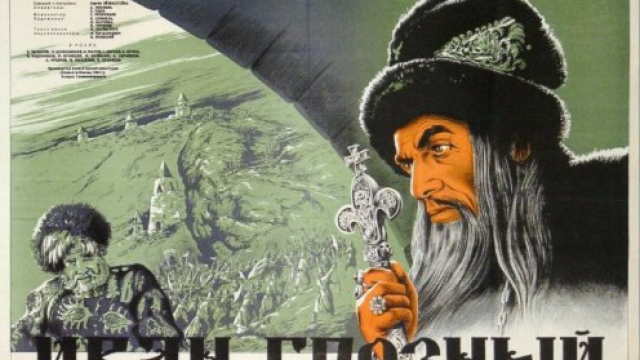It’s Victory Day Week on Moscow television, and the small screen by tradition treats viewers to a good selection of classic Russian films portraying the course and aftermath of World War II. Tune in and reconsider how the hard-fought victory was achieved and what it should mean today – two questions that have proven difficult for a society with an uncertain and still-evolving sense of its past. Here’s the where and when:
On MONDAY, Channel 1 screens the movie that probably best represents how Russia’s “Greatest Generation” saw World War II – or wanted to see it, rather, at a decade’s remove: Grigori Chukrai’s “Ballad of a Soldier” (1959). “Ballad” is an undisputed classic of postwar Soviet cinema, combining a multi-dimensional, wide-angle depiction of Soviet soldiers and civilians during the war with the extraordinarily successful close-up manipulation (largely in a positive sense) of its sympathetic young hero (wonderfully played by Vladimir Ivashov) and his two nearest and dearest (Zhanna Prokhorenko, Antonina Maximova).
In an era when Soviet propaganda, actual and historical, was routinely dismissed in the West, Chukrai’s film was a revelation to American critics and audiences, producing an emotional reaction many art-house and festival viewers found overwhelming: as Time magazine's awed critic put it, “Ballad” “brings back the kind of catch in the throat that Hollywood movies used to achieve on occasion.” And indeed, if you find yourself unmoved as the teenage Private Alyosha Skvortsov tells his mother at the end of his odyssey through war-torn Russia, “Mama, I’ll come back” (“Mама, я вернусь”), you need to check your wrist for a pulse.
This is the most decorated Soviet-produced World War II film ever made, taking home something over 100 international and domestic awards altogether (including an Oscar nomination). Tune in and see what so impressed the world in the early 1960s about this groundbreaking Mosfilm effort – and decide for yourself just how true its message rings today.
Ballad of a Soldier / Баллада о солдате. Channel 1, Monday at 11:50 p.m.
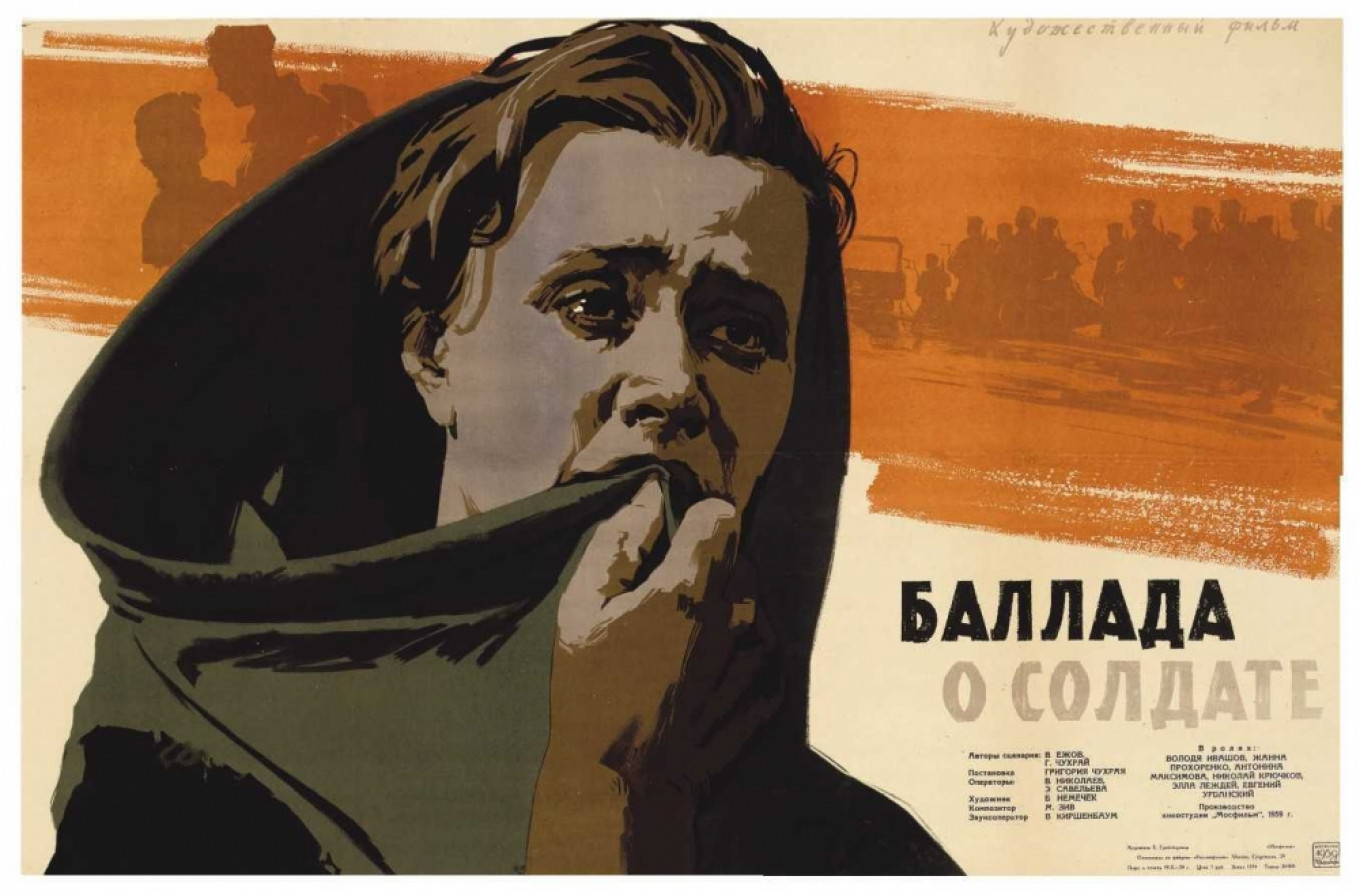
TUESDAY. After you’ve watched the great Victory Day parade across Red Square, tune in Andrei Smirnov’s “Belorussky Station” (1971) – a classic retrospective on the war that poses the question “If we really won, where did that leave us?” This feature belongs to the category of “great films in small ways,” a heartfelt and finely nuanced portrait of four wartime platoon buddies, now middle-aged Soviet white guys of greater and lesser civilian stature, who haven’t gotten together since they parted company 25 years before at Belorussky Station – but do so now for the funeral of their fifth musketeer, Matveyev.
The film basically relates two things that its audience, which was huge and nationwide, either knew already or sensed but couldn’t articulate: (1) that the war had been the defining experience of their lives, for better or worse; and (2) that the world they had created by winning it made them wonder – and indeed doubt – whether all the sacrifice and trauma had been worth it, as the heroes’ lives are all difficult and/or unrewarding in uniquely Soviet ways.
The veterans are marvelously characterized and played. Yevgeny Leonov is perfect as the lower class/blue collar member of the group – who knows how to open bottles without an opener and whom the upper-class types at Matveyev’s funeral dinner tellingly dismiss at first as “somebody’s chauffeur”; Anatoly Papanov makes you cringe as the principled accountant whose life is crippled by the corruption that he faces at his job; and Alexei Glazyrin is appropriately angry and confused as the seemingly powerful factory director who has discovered that being a director in this system actually means very little: It’s not what you know, it turns out…
These finely-etched portraits are backed by a great Alfred Shnitke score and the now-classic May holiday song “Нам нужна одна победа,” specially written for the film by Bulat Okudzhava. Briefly put, “Belorussky Station” is a must-see that tells a lot, implies a lot more and illustrates very well indeed what many here still think of as their national summary triptych: How We Were, Why We Were Right and What Happened Anyway – three truths that are still considered self-evident by half the people on your bus tomorrow. Tune in and see why they think so.
Belorussky Station / Белорусский вокзал. Channel 5, Tuesday at 1:45 p.m.
On WEDNESDAY, Kultura presents Marlen Khutsiev’s “The Ilyich Gate” (1962-64), a remarkably frank examination of the lives of a rising generation of Soviet youth – a post-Stalin, post-20th Party Congress, post-International Youth Festival wave of teens and young adults who filled stadiums to hear poets, listened to jazz and proto-rock music, consorted with foreigners and dared to talk in public about the problems of their past and future. If the four middle-aged heroes of "Belorussky Station” are left in limbo by their postwar lives, the three 20-somethings at the heart of “Gate” are successfully distancing themselves from that version of the past and clearly enchanted by life’s possibilities.
As one hero observes in a stunning dialogue with a “new-style” rebel (played nicely by future director Andrei Tarkovsky), “I take 1937 seriously – along with the fact that almost none of us have fathers.” And in a key scene in the film, the war, inevitably, makes its presence felt: “So how should we live?” (“Как жить?”) a veteran is asked by his son; but the father, having given his all in the great victory, has no answer.
Seldom at a loss for words, Nikita Khrushchev did have an answer for such "effrontery": After a special screening of “Gate,” he “personally attacked the film and denounced Khutsiyev and his collaborators for [suggesting] that young people ought to decide for themselves how to live." The nerve!
The film was quickly pulled from circulation, and a long battle to get it back in front of Soviet viewers, in one form or another, was engaged – and ultimately won only 20-plus years later, when “Gate” was restored and re-released.
Bear in mind, this feature is not merely some historical/sociological curiosity; it was also groundbreaking as an artistic statement about Soviet life – and quite appropriately shared the 1965 Jury Prize at Venice with a Buñuel offering. Real history meets great art in “The Ilyich Gate,” and you should meet it if you haven’t yet.
The Ilyich Gate [aka I Am Twenty] / Заставa Ильича [Mне двадцать лет]. Kultura, Wednesday at 3:10 p.m.
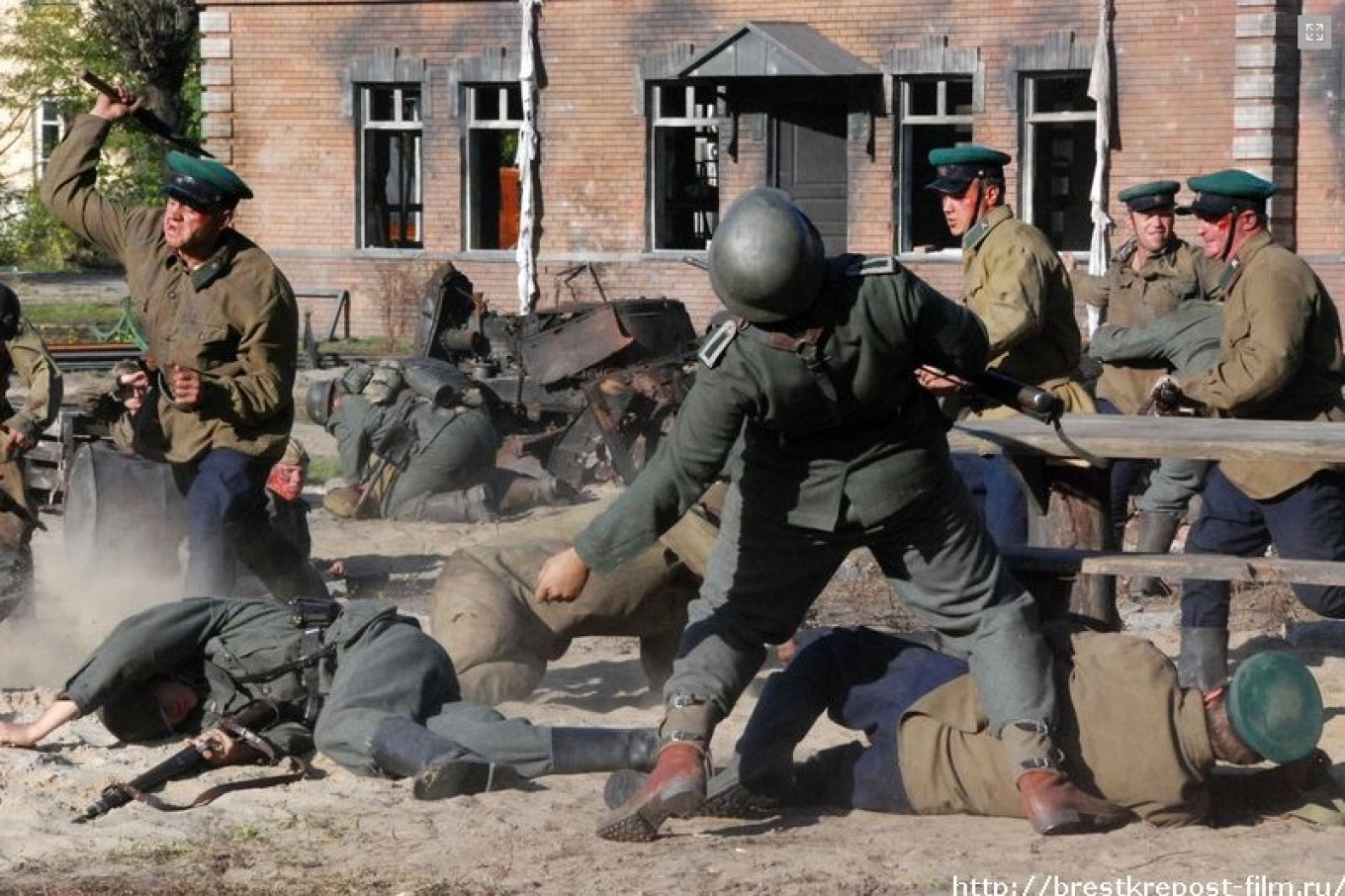
On THURSDAY viewers can take in Alexander Kott’s visually impressive “Brest Fortress” (2010), a popular Alamo-themed epic that is long on stout-heartedness but short on rationale – which stems, in part, from the existence of several versions of the Brest siege story that demand telling…
Narrative 1: A small, improvised group of garrison defenders heroically holds off multiple assaults by a vastly superior force of Germans before eventually leaving the fortress to battle on elsewhere – except for the remnants of a single infantry regiment who decide to stay and fight to the end. This is the stuff of a great movie, all right – but not a great Russian movie, as this summary describes the Polish defense of the fortress in 1939, not the Soviet defense two years later.
This Polish heroism against the “German-fascist aggressors” – a term soon to become familiar to Russians – remains little-known to Russian audiences today; it was necessitated, of course, by the co-operation of the Third Reich and the Soviet Union under the Molotov-Ribbentrop agreement that provided for Poland’s division and ensured its military defeat. The victorious Germans handed over the city and its fortress to their newly-arrived Soviet partners; the two armies then staged an amicable victory parade through Brest and parted company – only to meet again in June 1941, at the point when Kott’s “Brest Fortress” begins
Narrative 2, the Soviet Brest story: The fortress is again besieged and again defended heroically against the same Germans, this time by outmanned and outgunned Red Army units left to their fate by a Stalinist high command that had criminally mismanaged both the preparations for and early conduct of this second stage of World War II.
Kott’s film determinedly avoids the politics of the era, which is both a good and a bad thing: good in the sense that the heavy-handed ideological motifs that marked (and marred) so much Soviet-era filmmaking are almost entirely absent; there is little to distract viewers from the genuine drama of the Soviet defense of the fortress, which was indeed heroic, or from the development of several characters among its defenders.
The downside to this approach, of course, is that once you subtract all political/historical context, heavy-handed and otherwise, from a battle drama, many viewers will be left with very little sense of what the conflict unfolding before them, however superbly staged, was actually about.
When the entire set-up for a prolonged and terrifying battle sequence is a brief, idyllic collage of people happily spending the day that preceded it, the intensity, indeed fury, of the days and weeks that follow is hard to appreciate: The action takes place in a kind of horrifying vacuum, as though all this ghastly carnage and unbelievable bravery had, like a cyclone or tsunami, just happened.
The veterans of Brest, both Polish and Soviet, deserve greater depth. Do a bit of Wiki-reading (at least) on both these Alamos, then tune in to “Brest Fortress” and better appreciate the film’s obvious virtues.
Brest Fortress / Брестская крепость. Nash Detektiv, Thursday at 5:15 p.m.
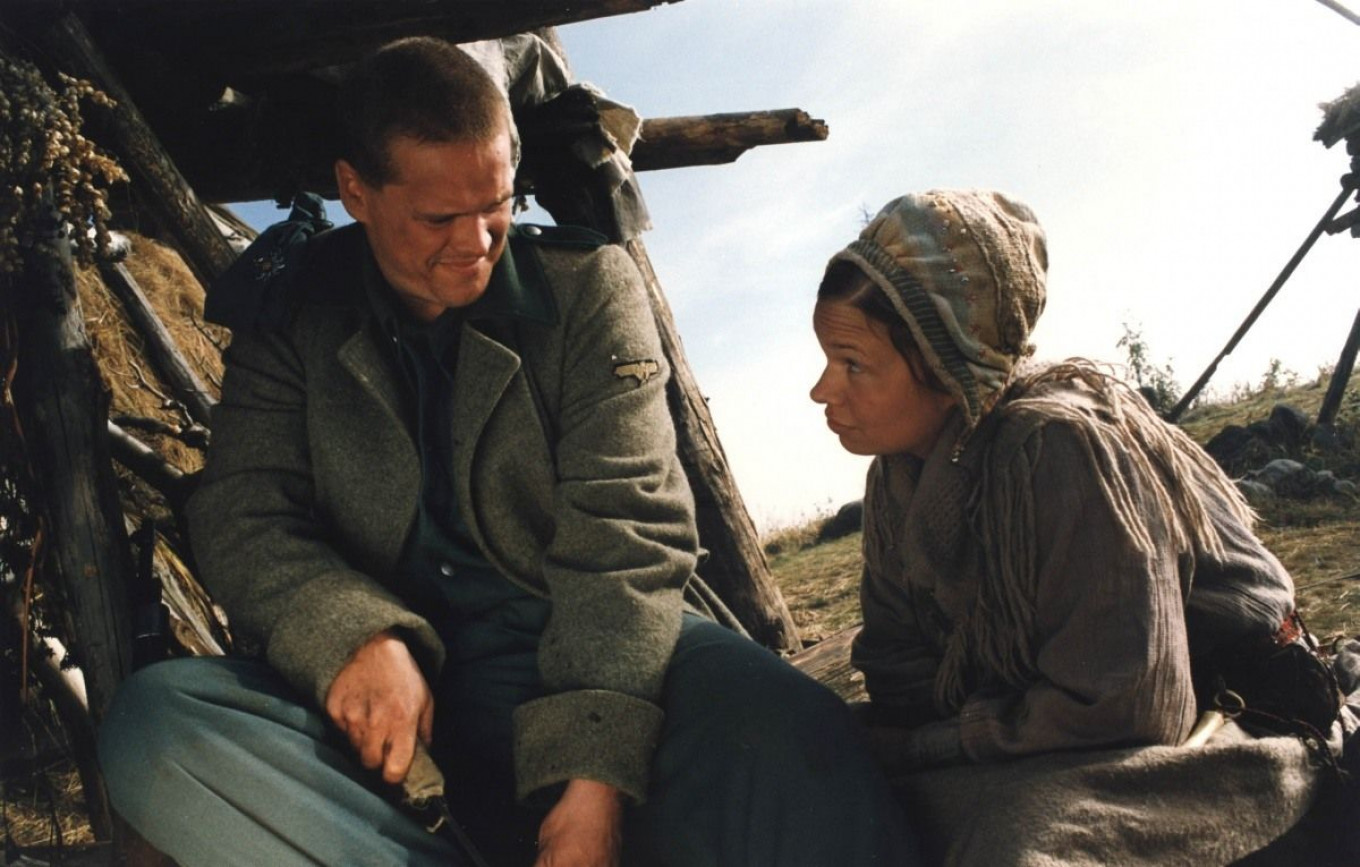
FRIDAY. It’s hard to think of a better way to end a week of good war films than Alexander Rogozhkin’s marvelous anti-war movie “The Cuckoo” (2002), one of those finely-crafted “small films” that you wish had gotten big-venue treatment – and the blockbuster-size audiences that come with it.
The wisdom of this movie’s message derives from two enemies forced to live in the presence and through the care of a third party who has no idea what their enmity is about. Specifically, a young Finnish soldier and a veteran Soviet officer end up in the primitive home of a Saami woman in September 1944, just as Finland is about to leave the war. The three have no common language, and the two warriors have to work out how to oppose each other without abusing their hostess in the process – which is both more difficult and a lot funnier than it sounds.
Stereotypes fall away in “The Cuckoo”: if you think of the Finns as merely a nation of plucky alcoholics with an admirable strain of anti-Soviet attitude, or of the Red Army in Finland as merely the blunt-instrument arm for enforcing a large-scale land-grab condemned by the League of Nations, or of Finland's Saami minority as some sort of benignly reindeer-obsessed far-northern version of Rousseau’s Natural Man – then your thoughts will range rather further afield after this film. Oh, and you will almost certainly think a little more charitably about the curative powers of Shamanism in the bargain.
Major kudos to writer-director Rogozhkin and equal credit to the much-lauded principals of his dynamic trio (Ville Haapasalo, Viktor Bychkov and Anni-Kristiina Juuso). Tune in to “The Cuckoo” and be reminded of how big a “small film” can be – and of what the Russian film industry can say about World War II without resorting to bombast, clichés or, saints preserve us, Nikita Mikhalkov.
The Cuckoo / Кукушка. TV1000 Russkoye Kino, Friday at 4:10 p.m.
Mark H. Teeter is the editor of Moscow TV Tonite on Facebook.
A Message from The Moscow Times:
Dear readers,
We are facing unprecedented challenges. Russia's Prosecutor General's Office has designated The Moscow Times as an "undesirable" organization, criminalizing our work and putting our staff at risk of prosecution. This follows our earlier unjust labeling as a "foreign agent."
These actions are direct attempts to silence independent journalism in Russia. The authorities claim our work "discredits the decisions of the Russian leadership." We see things differently: we strive to provide accurate, unbiased reporting on Russia.
We, the journalists of The Moscow Times, refuse to be silenced. But to continue our work, we need your help.
Your support, no matter how small, makes a world of difference. If you can, please support us monthly starting from just $2. It's quick to set up, and every contribution makes a significant impact.
By supporting The Moscow Times, you're defending open, independent journalism in the face of repression. Thank you for standing with us.
Remind me later.



